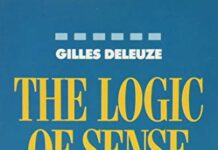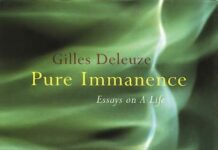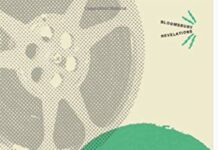
Ebook Info
- Published: 2005
- Number of pages: 224 pages
- Format: PDF
- File Size: 6.15 MB
- Authors: Gilles Deleuze
Description
Translated and with an Introduction by Daniel W. Smith Afterword by Tom Conley Gilles Deleuze had several paintings by Francis Bacon hanging in his Paris apartment, and the painter’s method and style as well as his motifs of seriality, difference, and repetition influenced Deleuze’s work. This first English translation shows us one of the most original and important French philosophers of the twentieth century in intimate confrontation with one of that century’s most original and important painters. In considering Bacon, Deleuze offers implicit and explicit insights into the origins and development of his own philosophical and aesthetic ideas, ideas that represent a turning point in his intellectual trajectory. First published in French in 1981, Francis Bacon has come to be recognized as one of Deleuze’s most significant texts in aesthetics. Anticipating his work on cinema, the baroque, and literary criticism, the book can be read not only as a study of Bacon’s paintings but also as a crucial text within Deleuze’s broader philosophy of art. In it, Deleuze creates a series of philosophical concepts, each of which relates to a particular aspect of Bacon’s paintings but at the same time finds a place in the “general logic of sensation.” Illuminating Bacon’s paintings, the nonrational logic of sensation, and the act of painting itself, this work—presented in lucid and nuanced translation—also points beyond painting toward connections with other arts such as music, cinema, and literature. Francis Bacon is an indispensable entry point into the conceptual proliferation of Deleuze’s philosophy as a whole. Gilles Deleuze (1925–1995) was professor of philosophy at the University of Paris, Vincennes–St. Denis. He coauthored Anti-Oedipus and A Thousand Plateaus with Félix Guattari. These works, as well as Cinema 1, Cinema 2, The Fold, Proust and Signs, and others, are published in English by Minnesota. Daniel W. Smith teaches in the Department of Philosophy at Purdue University.
User’s Reviews
Editorial Reviews: About the Author Gilles Deleuze (1925-1995) was professor of philosophy at the University of Paris, Vincennes-St. Denis.
Reviews from Amazon users which were colected at the time this book was published on the website:
⭐Deleuze’s baroque elaborations are pointed in some kind of a direction in this one, to purposes that would be of interest to most painters, elaborating exterior readings of Bacon’s work with a vocabulary of materials and sensations that burrow into the process-manipulation end of the deal, the material childhood of making and engaging. Not much cultural critical baggage. Strangely lucid for Deleuze, maybe because he has something substantial to expend his vocabulary on, rather than vague fields of desire and sensation going every which where? His provocative energies are deployed as creatively as any painter’s at the coal-face, and not unlike. A kind of analogy to painting itself, in the way that Deleuze has of seeming to make it up as he goes along. Could be subtitled, if it wasn’t a dangerous notion to put out there: Why we Paint. I recommend it to students, not to find out about Bacon (who is always good to find out about), or necessarily about how to paint a certain way, but to help them into a kind of head-space about painting, that takes it back to the kind of things you take can notice of when paint events you ’cause’ start happening.
⭐The classic. Very French (logical yet poetically), and very Bacon. One should know Bacon fairly well to enjoy this book though. Reference of his paintings in the book, you are only given the names, no accompanying image to view. The book is all text.
⭐brilliant!
⭐Others have given the essential commentary this book deserves. I just want to add that wrestling with both Deleuze and Bacon was made much easier for me (though not easy!) by these online resources:1) Corry Shores’ blog called “Pirates and Revolutionaries” has the paintings by Bacon that Deleuze refers to, along with relevant quotes from Deleuze and Mr. Shores’ own extremely helpful commentary. Google “Paintings cited in Deleuze’s Francis Bacon.”2) There is a very good documentary on Bacon on the occasion of the Tate showing. Google “Francis Bacon talking to David Sylvester, The South Bank Show, 1985”
⭐I’ve been a painter now for over 20 years and very rarely have I come across the kind of insight and intelligence demonstrated in this wonderful book. For some reason at art school I avoided Deleuze but I’m glad I found him at what is probably the right time for me and my development as a painter.I also read this book after seeing the recent Bacon retrospective at Tate Britain and its words resonated all the more clearly for this. As a discussion on the life and work of Bacon I feel it is insightful if not biographically informative (but that’s not really the aim or purpose here), but Deleuze goes much further than this. At its best it offers a series of interpretive, intellectual models of analysis for artists. Like Bergson before him, Deleuze offers a non prescriptive and discursive manual for others to spring from. It manages to confront that terrible old dichotomy of theory versus practice by creating a performative space in written language that has a qualitative relationship to the stuff of paint, bodily movement, smell and touch.A must have book, not just for painters but for anyone interested in visual art and philosophy. It’s also a very good introduction to the work of one the 20th century’s greatest thinkers
⭐this is an excellent book for any artist or intellectual interested in modern art. Deleuze understands the canvas better than bacon,creating powerful justifications for the modern approach to art . though people criticize him for unintelligable thinking,i feel it is more appropriate to say deleuze wages a war on the cliche, which includes our habitual methods of thinking…to understand deleuze is to graduate from the sterile plane of habitual thought and enter a zone of creativity ..a zone that deleuze recognizes as the arena of art..
⭐in this book, deleuze demonstrates that modern knowledge is no longer powered by dialectics or rationale, but by human sensuality. bacon’s work is a good example to show that how art owns the ability to go beyond discourses.
⭐Gilles Deleuze is one of France’s most important philosophers, and in that role he has influenced many branches of the arts with his scholarly investigation of the subjects he chooses to investigate.Deleuze here writes about the ‘sensational’ aspects of Francis Bacon’s art, art which he knows well, living with several of Bacon’s works in his home. His exploration of the inspiration of Bacon’s various trademark strokes and subjects grows naturally out of his applying philosophical musings on visual subjects: this book is a thesis on aesthetics for which Bacon is simply but powerfully the nidus.Though the book was written in 1981, it remains one of the more fascinating books on aesthetics and the influences on Bacon’s work along with sidebars on music, film, and writing that make the work more of an informed ‘novel’ than simply the intellectual volume it is. For this reader the addition of more visuals would have made more of an impact, but the writing (or translation from the French!) is so seethingly seductive that soon the visuals would become secondary. This is a tough read but a most important one. Grady Harp, July 06
⭐Divided into short chapters for ease of digestion, the work offers an interesting blend of the author’s take on Bacon’s art and extracts form interviews withe artist himself.
⭐amazing book, came in good condition
⭐Amazing book recommend it for people that want to read more about painting.
⭐great read!
⭐Insightful book. Very helpful for any artist
Keywords
Free Download Francis Bacon: The Logic of Sensation in PDF format
Francis Bacon: The Logic of Sensation PDF Free Download
Download Francis Bacon: The Logic of Sensation 2005 PDF Free
Francis Bacon: The Logic of Sensation 2005 PDF Free Download
Download Francis Bacon: The Logic of Sensation PDF
Free Download Ebook Francis Bacon: The Logic of Sensation





